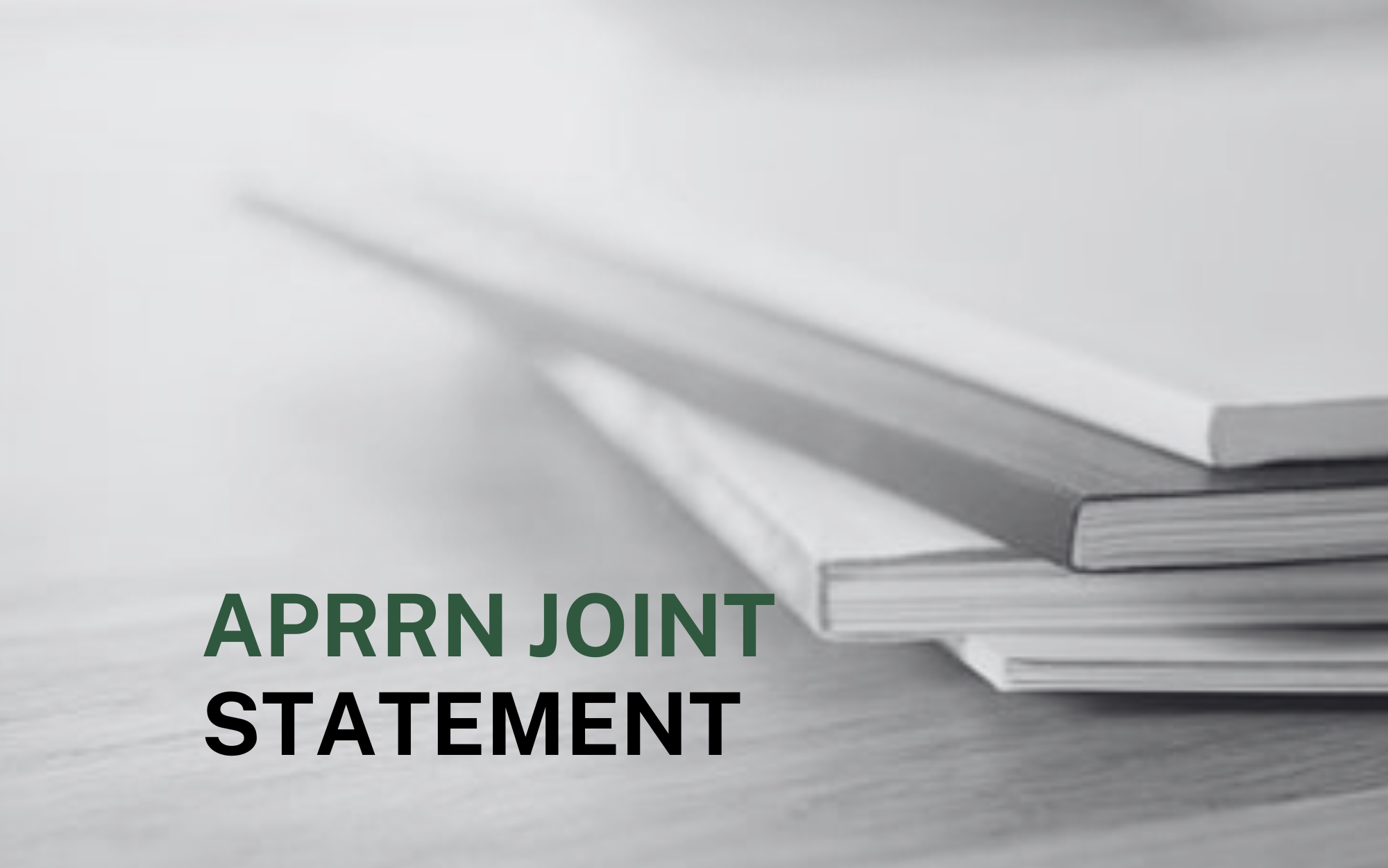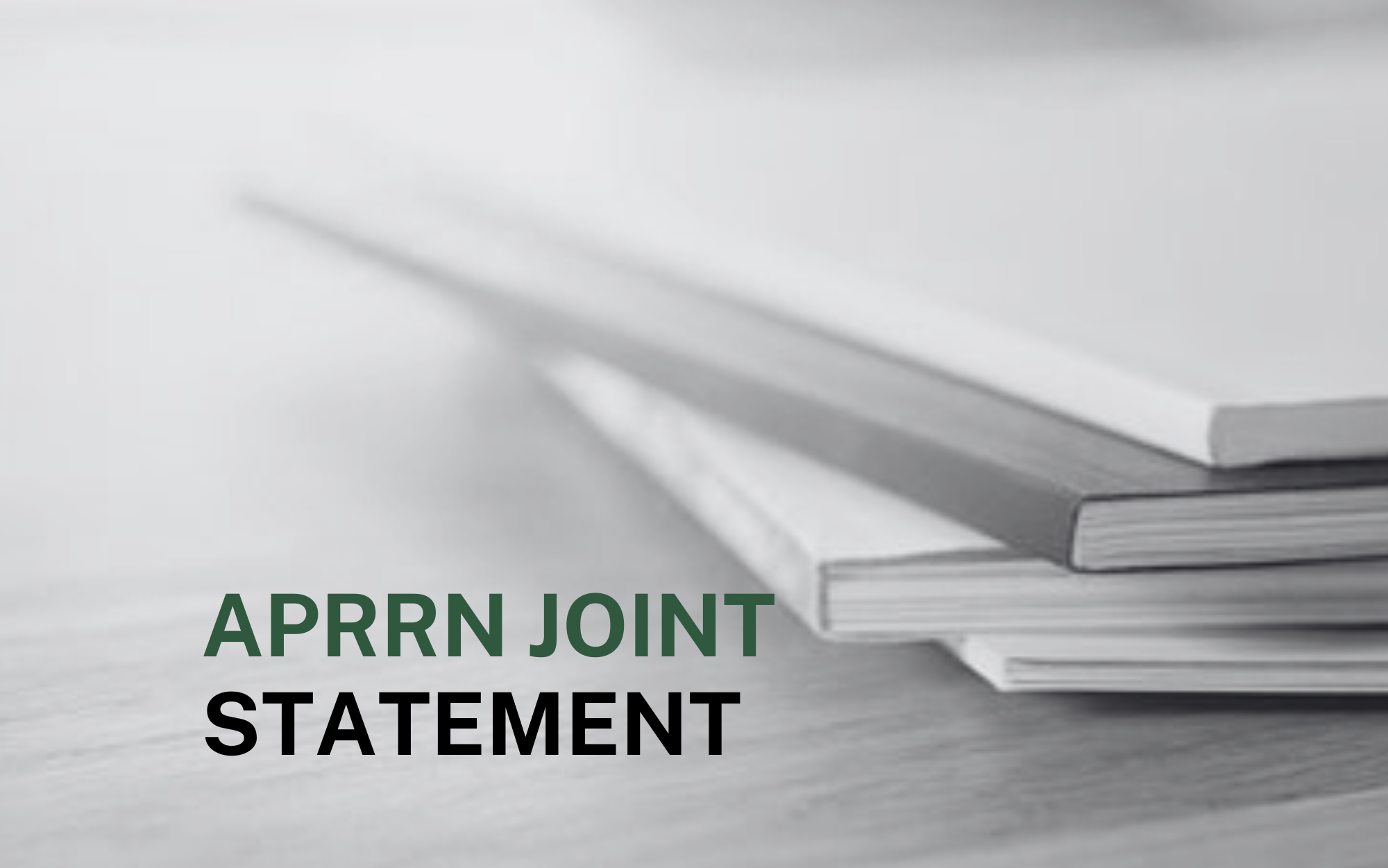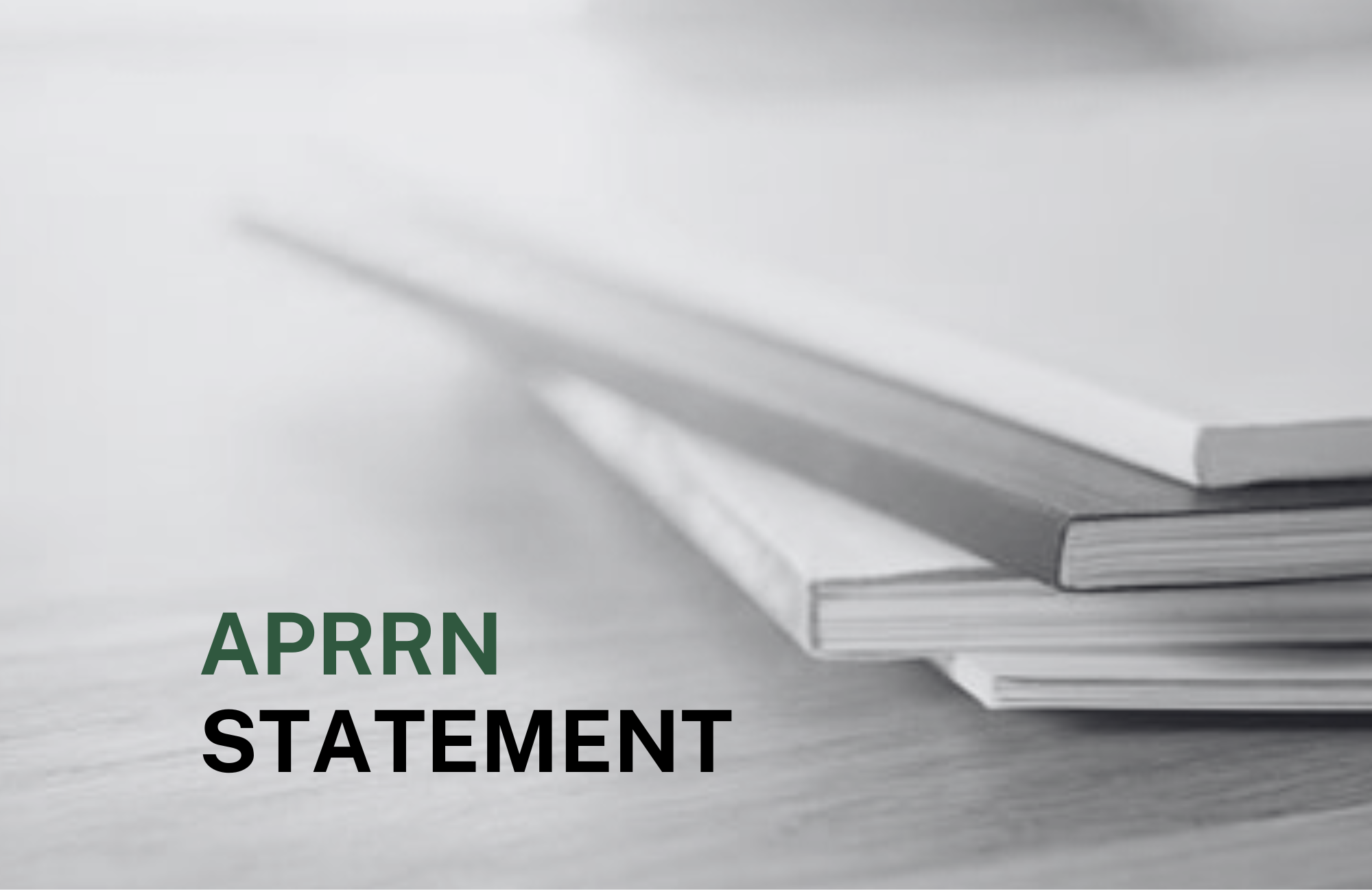URGENT STATEMENT: Refugees must be included in COVID-19 response, not vilified or ignored
16 March 2020
The Asia Pacific Refugee Rights Network (APRRN) is calling upon local, national, and international COVID-19 response actors to ensure refugees and other migrants are substantively considered in their preparedness and response plans as a matter of urgency.
Regardless of their legal status, refugees and other migrants are human. They are susceptible to increased vulnerabilities relating to access to healthcare, testing, and prevention measures, and are often confined to restricted spaces without adequate access to life-saving supports. COVID-19 responses must reinforce essential efforts by humanitarian organisations and refugees themselves to prepare refugee camps, reception centres, detention centres, and settlements for the arrival of COVID-19, including ensuring real access to national medical infrastructure.
World Health Organisation instructions for limiting the spread of COVID-19 include avoiding contact with people who are infected, regularly washing hands with soap, stocking up on essential items, and visiting a medical professional at the onset of any symptoms. Cramped conditions, lack of suitable sanitation infrastructure, limited clean water, and already overburdened health facilities put millions of refugees and other migrants at risk of contracting the virus and frustrating global efforts to slow its expansion and contain its effects.
Social distancing is difficult in Kutupalong Camp in Bangladesh, for example, where over 600,000 people live in an area of just 13 square kilometres, with space as low as 8 square meters per person in some areas. Refugees and other migrants held in immigration detention centres often are confined to cramped cells with dozens of others, with limited or no access to healthcare, sanitary facilities, or fresh air.
Immigration authorities must grant temporary leave rights to detained or otherwise restricted populations in order to access healthcare if sufficient services are not already provided, as the Republic of Korea has laudably done. Authorities must also act to suspend the ‘criminalisation’ of refugee and migrant presence in urban settings, as fear of detention and deportation will discourage these populations from seeking necessary help, compounding challenges posed by their limited access to healthcare, insecure work and housing, and little disposable income, and increasing general risk. Refugees and migrants without national health insurance or documented status must not be excluded from preventative measures, including mask distribution schemes. Such action exposes them to risk and undermines efforts to control the spread of the virus. Similarly, these populations must be guaranteed non-penalisation for attending health services without proper documentation. Legal status must not become yet another obstacle to battling this virus.
Refugees are the primary actors when it comes to their own health and maintenance. COVID19 response efforts must recognise the vital role of including them alongside hosting communities in planning and implementing support strategies. APRRN applauds the efforts seen to date that provide accurate information to refugee communities in languages they understand, as well as to press the international community to take seriously the risks posed by COVID-19 to these communities. In this regard, we applaud Bangladeshi efforts to develop a multi-sector response plan to manage risks, including the provision of specialised training to hundreds of health workers and establishing isolation chambers.
However, COVID-19 does not recognise borders, and Bangladesh must not be left to act alone. Nationalist, isolationist approaches, including those that shut borders and vilify migrant populations, are bound towards failure, with potentially catastrophic consequences affecting our most vulnerable populations. Similarly, we must not give up hard fought fundamental human rights enshrined in international law, such as the right to seek asylum from persecution and the right to healthcare, in the name of ‘preventative action’, by closing borders and restricting the distribution of care.
More than ever, now is the time for the international community to meaningfully support refugees’ preparedness for infectious diseases and not to vilify, scapegoat, or otherwise augment their exposure to risk. The closing of borders should not prevent those fleeing persecution from seeking asylum; legal status must not be a barometer for life-saving care; and fear of the virus must not feed nationalist political agendas augmenting xenophobia.
While APRRN statements are prepared in consultation with APRRN members they do not necessarily reflect the views of all APRRN members.
-END-
The Asia Pacific Refugee Rights Network (APRRN) is a network of 400+ civil society organisations and individuals from 28 countries committed to advancing the rights of refugees in the Asia Pacific region. APRRN aims to advance the rights of refugees and other people in need of protection through joint advocacy, capacity strengthening, resource sharing and outreach.
Media Contact:
Janeen Sawatzky, Programme Coordinator, APRRN
Tel: +66 (0) 98 252 5102 Email: janeen@aprrn.info Fax: +66 2 234 2679
Themba Lewis, Secretary General, APRRN
Tel: +66 (0) 99 481 1595 Email: themba@aprrn.info Fax: +66 2 234 2679
Recommended

Feb. 8, 2024
Joint Statement on Malaysia’s Harmful Immigration Detention Policies & Practices
“Malaysia should use its final year as a member of the UN Human Rights Council to implement urgently needed reform of its immigration detention policies and practices. We are alarmed by Malaysia’s arbitrary and indefinite detention of men, women, and children fleeing genocide and human rights violations. We see the repeated incidents of deaths and escapes from immigration depots as an indicator of injustices that need to be addressed humanely through reform”

Feb. 2, 2024
Urgent Appeal on the Situation of Myanmarese Refugees in India
India has become an increasingly important destination for refugees fleeing Myanmar since the 2021 coup d’état. While the Indian government has condemned the violence, it has simultaneously ordered several frontline states to identify “illegal immigrants” with a view to deporting them. As states expand their detention systems there are increasing reports about mistreatment in custody, paltry detention conditions, and pushbacks along the border.

Dec. 14, 2023
The Asia Pacific Refugee Rights Network (APRRN) Statement on the Global Refugee Forum 2023
APRRN welcomes the convening of the second Global Refugee Forum (GRF) from 13-15 December 2023. During this forum, we acknowledge the commitments made by various States and stakeholders to support the practical implementation of the Global Compact on Refugees (GCR).